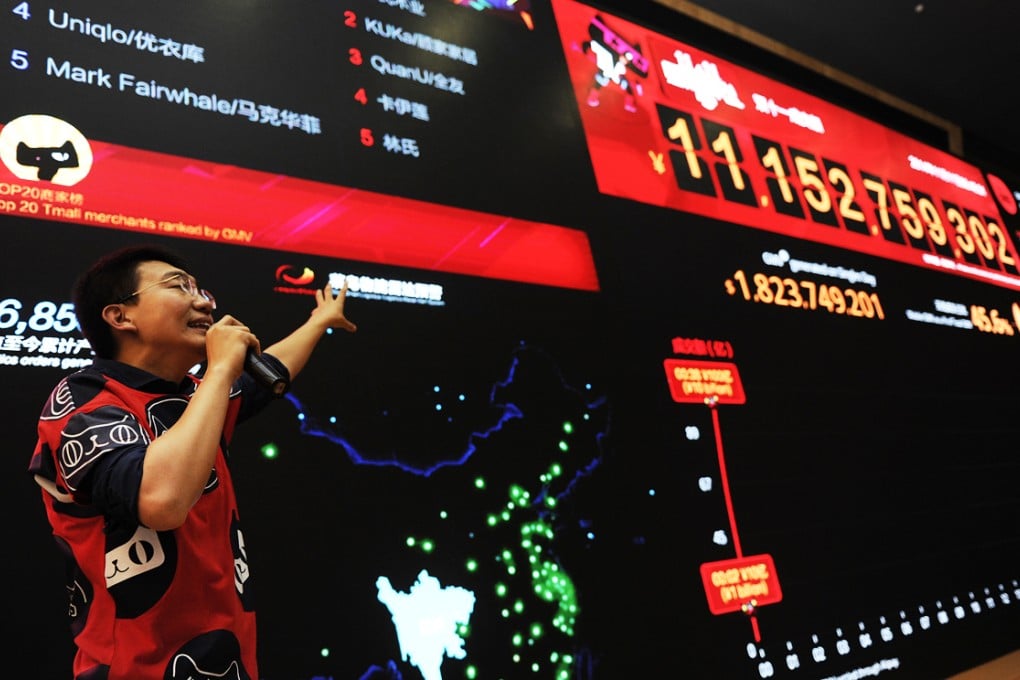New | Global Times hails record-breaking online shopping festival as show of Chinese 'soft power'

Chinese state media hailed the country’s annual online shopping binge as the “Mount Everest of e-commerce” after retailers set multiple records during “Double Eleven” sales.
The sales, when e-commerce giants offer their biggest discounts of the year, kicked off at midnight yesterday and will run until midnight tonight. Within three minutes, total transactions had topped 1 billion yuan (HK$1.26 billion). Sales then surpassed 10 billion yuan within 39 minutes.
“A super shopping holiday that the world has never seen before has taken place,” trumpeted Global Times, a subordinate newspaper of Communist Party mouthpiece People’s Daily, known for frequently striking a nationalist tone.
“The Double Eleven, a ‘festival’ made by Chinese people, is now shoulder to shoulder with Western festivals like Christmas or Valentine’s Day, and perhaps even overpowers them,” the newspaper said in its editorial today, describing the event as the “Mount Everest of e-commerce”.

However, leading e-commerce platforms and large retailers have increasingly taken advantage of the day to promote their products online in recent years, with the event quickly becoming a nationwide shopping spree.